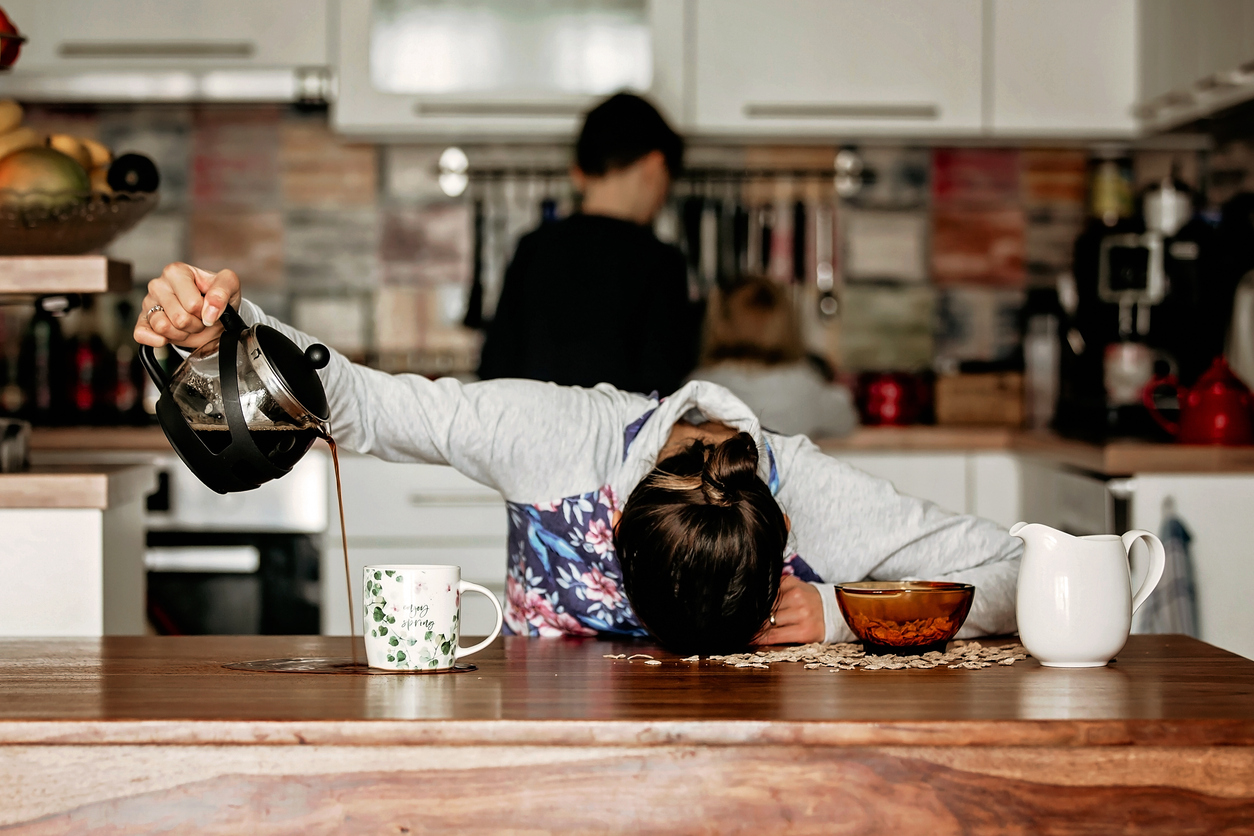Feeling tired all the time? You are not alone! Fatigue is a common complaint that can zap your energy and leave you feeling drained. But fear not: there are many effective ways for fighting fatigue and boosting your vitality. Dr Linia Patel explores.
Understanding fatigue
Fatigue isn’t just feeling sleepy. It’s that feeling when you drag yourself out of bed despite getting enough sleep and find yourself living from one caffeinated drink to the next. You feel sluggish and tired. You lack energy and motivation to do your daily activities. Fatigue can be caused by a variety of factors, including lack of sleep, inadequate calories, poor blood glucose regulation, and dehydration, as well as medical conditions like anaemia, thyroid disorders, or a folate or B12 deficiency.
Top tips for fighting fatigue
- Get good in bed. Prioritise your sleep. Our body uses sleep as an opportunity to remove energy-draining metabolites and refresh your body. If you don’t sleep enough, naturally you will feel tired, have low energy and exercise won’t be on the top of your list. If you are consistently getting fewer than seven hours now, it’s important you try to change it. Work your way up slowly to seven to eight hours. Even adding 30mins can make a difference. Ensure that you head in the direction of bed well before you want to be asleep.
- Stay hydrated. Dehydration slows down circulation and affects the flow of oxygen throughout the body and brain, making you feel tired, sluggish and less focused. Drink a glass of water first thing in the morning. This could also be hot water with a slice of lemon in it or a glass of water that you have with your coffee. Sip at your water bottle regularly throughout the day. Use alarms, notifications or even Alexa to help keep you accountable. Swap sugary drinks for sparking water with some slices of orange or cucumber.
- Unshackle with sugar. It’s tempting for us all when we have low energy to reach out for that sugary boost. It’s the quick fix. However, this will only fuel the blood sugar rollercoaster ride. You may want to be hardcore and go cold turkey (it is tough but works for some) and cut all added sugar out for a period before you re-introduce small amounts back. Or you may just want to make some small changes that help you cut down on your sugar intake without you noticing it too much. Stop adding sugar to tea, coffee and hot drinks. Remember honey and maple syrup are sugar too. Sweeten porridge and cereal with a piece of fresh fruit or some chopped dried figs. Swap fruit-flavoured yogurts for natural yogurts. Add in your own fruit or compote for sweetness. Be wary of ‘sugar-free’ foods. They contain artificial sweeteners, which still taste sweet and will continue to feed your sweet tooth. Switch refined options like white rice or bread to wholegrain options. Swap milk chocolate for the dark variety (>70%). Treats are for the occasional time and a biscuit every day isn’t occasional enough.
- Sugar cravings? Get to the route cause. Sugar cravings are caused by many factors. It could be not enough sleep. It could be stress. It could be mild dehydration. It could be that you are low on protein. It could be that you need to unshackle with refined carbohydrates. Keep a food diary to give you more insight into your dietary habits. Focusing on improving how much sleep you get is a good place to begin.
- Have a banana afternoon snack. Studies show that eating bananas helps enhance memory. They not only contain potassium but also vitamin B6, which promote the production of serotonin and dopamine, which are important for good concentration. Pair your banana up with some walnuts or almonds for balance.
- Limit caffeine and alcohol. While caffeine and alcohol can provide temporary energy boosts, they can also disrupt your sleep and leave you feeling more fatigued in the long run. Limit your intake of caffeinated beverages like coffee, tea and energy drinks, especially in the afternoon and evening. Enjoy alcohol in moderation and be mindful of the effect on your sleep and energy levels.
- Move more. Although probably the last thing you feel like doing, movement is exactly what you need to increase your energy levels. Go for a walk. Routinely build movement in. Snack on exercise: a two-minute plank when you watch the news; 10 star jumps as the kettle boils; a sun salutation routine at the end of each day. Find a way to move more.
- Manage stress. Learning to say no is one way to manage your stress. Pour into cups that pour back into yours. Pour into yourself the way you pour into others. Spend more time around people who uplift you and enjoy your authentic self.
- Get some sunlight. Exposure to natural sunlight can help regulate your body’s internal clock and improve your mood and energy levels. Aim to spend some time outdoors each day, even if it’s just for a short walk around the block or sitting in a sunny spot. If sunshine is limited, you may want to consider using a light therapy box to mimic the effects of natural sunlight.
- Consider supplementing with a B-vitamin for a period. B vitamins play a role in supporting the body to produce chemicals that affect mood and other brain functions. You may want to consider supplementing with a B complex daily for a couple of weeks to help support your adrenals and boost your energy levels.
Take-home message
Fatigue doesn’t have to rule your life. By prioritising sleep, staying hydrated, moving your body, eating a balanced diet, managing stress, taking regular breaks, limiting caffeine and alcohol, and getting some sunlight, you can fight fatigue and reclaim your energy. Experiment with different strategies to find out what works best for you and don’t hesitate to seek help from a health professional if fatigue persists.








